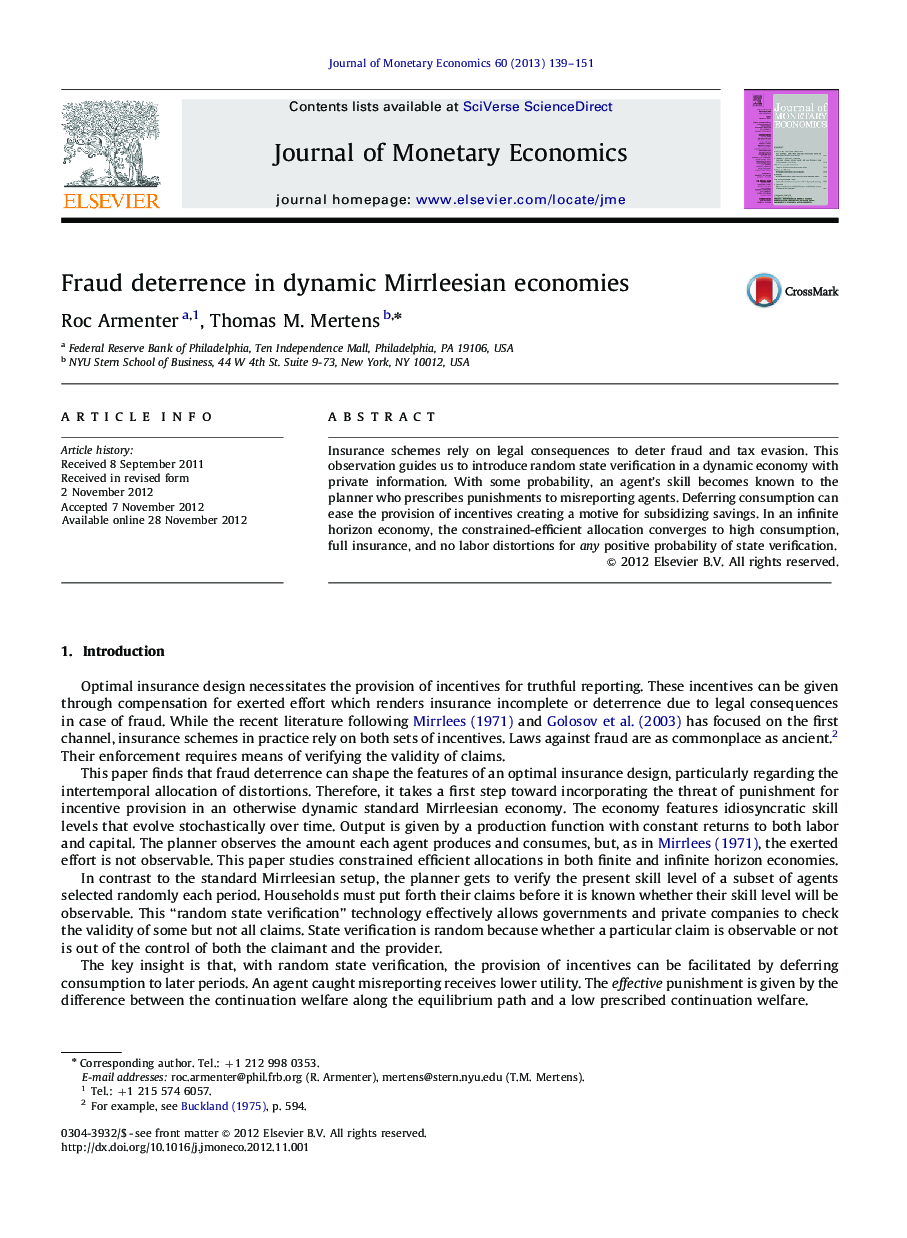| Article ID | Journal | Published Year | Pages | File Type |
|---|---|---|---|---|
| 967687 | Journal of Monetary Economics | 2013 | 13 Pages |
Insurance schemes rely on legal consequences to deter fraud and tax evasion. This observation guides us to introduce random state verification in a dynamic economy with private information. With some probability, an agent's skill becomes known to the planner who prescribes punishments to misreporting agents. Deferring consumption can ease the provision of incentives creating a motive for subsidizing savings. In an infinite horizon economy, the constrained-efficient allocation converges to high consumption, full insurance, and no labor distortions for any positive probability of state verification.
► State verification can change the sign of the intertemporal wedge in a private information economy. ► We derive conditions under which a non-positive wedge prevails in finite horizon economies. ► The infinite horizon economy converges to full insurance without labor distortions.
